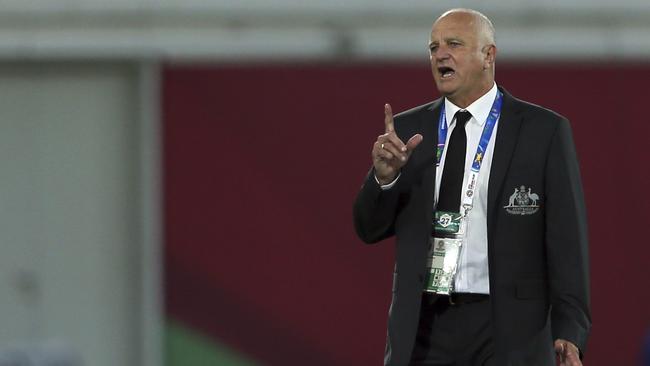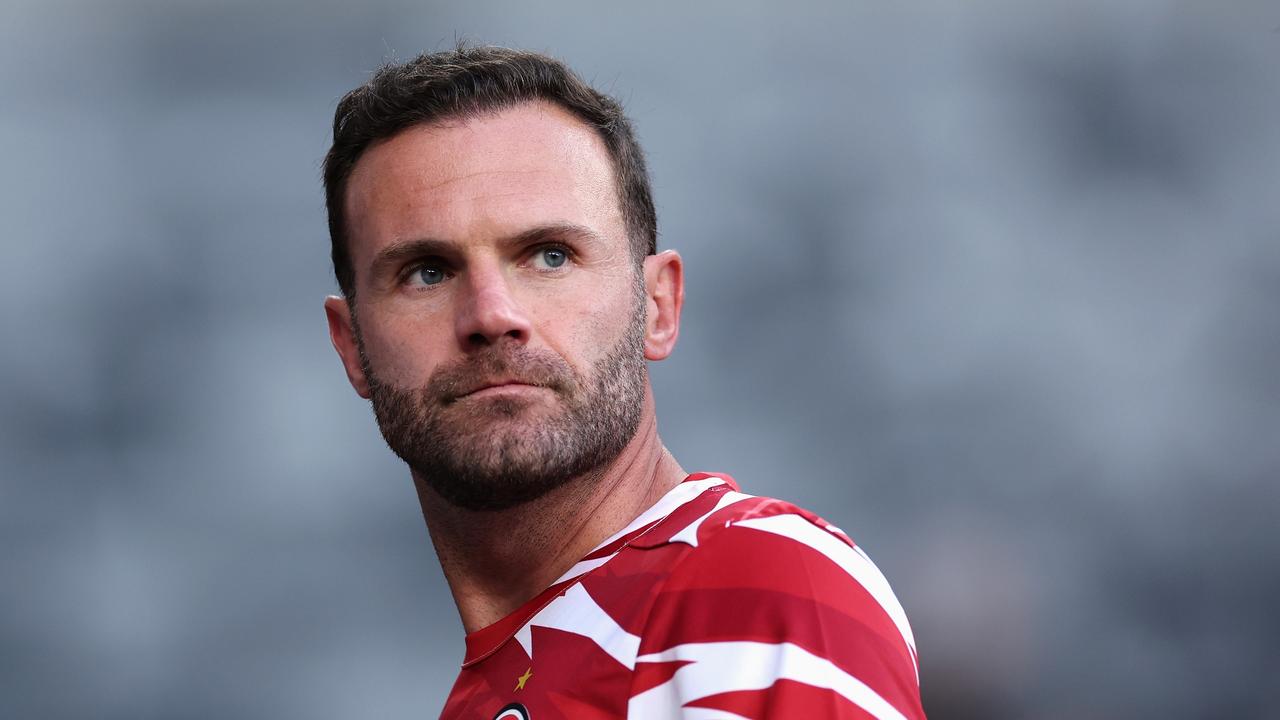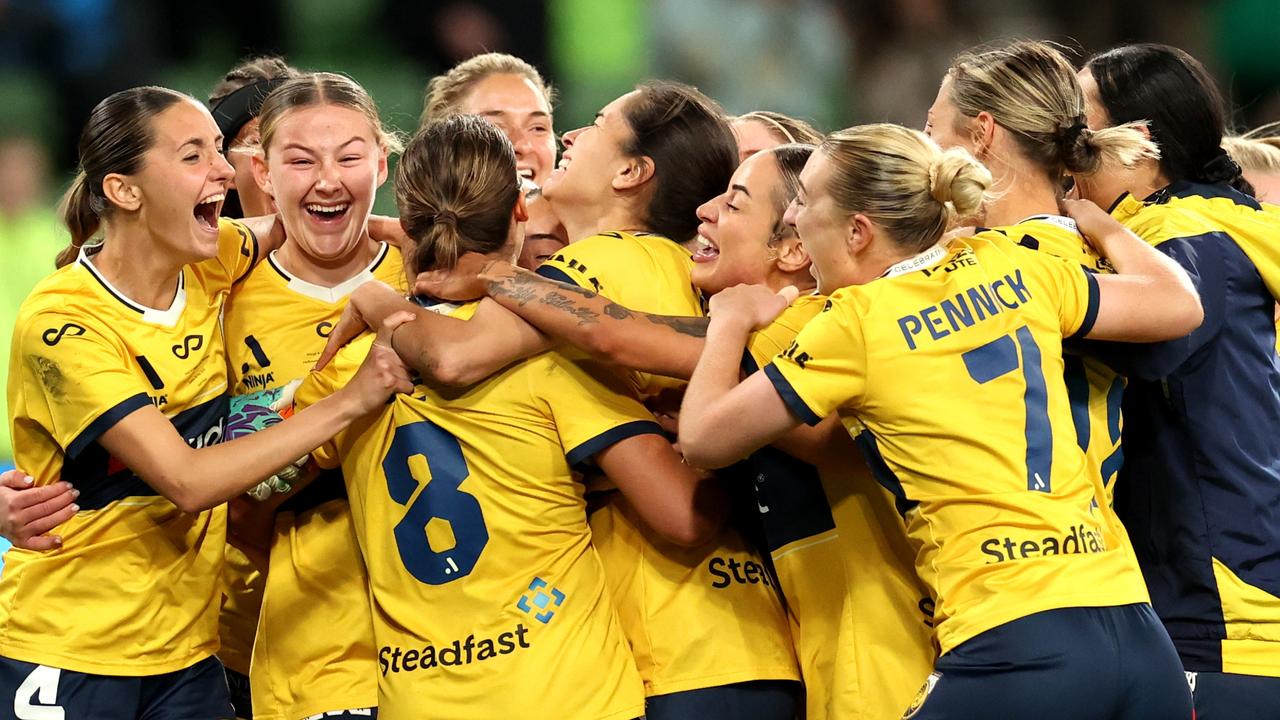Asian Cup 2019: Graham Arnold’s eye on the opposition
There’s a bit of Marcelo Bielsa in every football manager, ventures Graham Arnold.

There’s a bit of Marcelo Bielsa in every football manager, ventures Graham Arnold.
Not that the Socceroos are sending covert scouts to their opposition’s training sessions.
More in the sense that Australia’s national team, who play Uzbekistan in the Asian Cup round of 16 early tomorrow morning, have gathered so much intel on their rivals they might know more about them than they know about themselves.
“Spygate” lifted Bielsa’s legend to new heights this past week after the Argentine Leeds United manager not only admitted to secretly watching all the Championship leaders’ adversaries train, but reacted to the English media’s collective moral outrage by taking journalists through a 70-minute PowerPoint presentation replete with data.
Arnold’s information-gathering techniques are not nearly as clandestine — though Bielsa broke no laws or rules — but he agreed with Manchester City manager Pep Guardiola that “everybody does it”.
“That’s no different to us,” Arnold said. “The only thing is I don’t go to their training sessions. But that’s the way modern-day football is, we know more about the opposition than we know about our own team.
“I could sit down one day and show you what we go through and what the boys go through. The intel is … you can’t hide anything anymore these days with video.
“It’s the type of preparation I’ve always done, it’s about attention to detail and knowing everything the opposition is doing.”
The Socceroos have a small team of scouts travelling separately to the squad across host cities in the United Arab Emirates.
Former Socceroos assistant coach turned chief scout Ante Milicic, analyst Kate Cohen and Joeys coach Trevor Morgan have been attending the matches of all upcoming and prospective opponents and feeding intelligence back to senior technical analyst Doug Kors and the team.
“We’ve had scouts at every one of their games and we’ve had scouts at potential opponents,” Arnold said. “We’re only going to talk about Uzbekistan but we’ve got scouts at the UAE game.
“We know what’s going on well in advance, and even before we came to the tournament we knew what we were up against.”
The big teams too, like South Korea, Iran, Japan and Saudi Arabia, are getting the same treatment to plan for any knockout-stage scenario.
Back in camp, tactics are specifically formulated to target each opponent’s vulnerabilities and then practised ad nauseam — one such drill seen two days before the win over Syria was executed effectively in the 3-2 thriller.
But Arnold also pointed out there’s a limit to which analysis is useful, and called on his team to be more ruthless with chances after several went begging against Syria. Integral to that is striking the fine balance between giving players helpful hints and overloading them.
Arnold keeps it simple, opting for three key messages with the ball and three without it.
“Any more than three messages, it becomes too confusing,” he said. “It can be paralysis by analysis, you can do too much.
“Football, in my view, is a simple game. The more complicated you make it the more confusing you make it. There’s not much to hide anymore.
“Set pieces — seriously, the amount of detail that goes into set pieces and all that type of stuff … to try and strike something completely different.
“We’ve still got some things we haven’t shown the opposition yet on set pieces that will come out in the knockout stage.”
A rough-and-ready Uzbekistan await in the round of 16 early tomorrow and, in a boost, Mat Leckie will return from his hamstring injury to the bench with the prospect of a short cameo depending how the game pans out.
“The most important thing is the mind and the brain and making sure that the emotional side of it doesn’t take over the tactical side and the game plan side,” Arnold said.
Australia should be wary of Uzbekistan’s individual talent, according to former Socceroo David Carney, the first Australian to play domestic football in the country.
Carney spent about eight “eye-opening” months with FC Bunyodkor in 2012, having been noticed and recruited after scoring in the 6-0 thrashing of the former Soviet republic in the 2011 Asian Cup semi-final. And though his game time was limited, he saw enough to know they’re a formidable football nation.
“They take their football serious, they had good facilities at Bunyodkor,” Carney said.
“They’ve got a great stadium now. They definitely invest a lot in football, and they have the players that played in Russia and Europe.
“They’ve just got some individual players that are quality. I think tactically Arnie will have them and the Socceroos will win.
“But I just feel like they’ve got to be wary because they will have some individual players who can produce quality moments so they’ve got to be careful.”
Apart from Rostyn Griffiths’ nine months with Pakhtakor Tashkent in 2017-18, Carney is the only Australian player to have experienced Uzbekistan’s football landscape.



To join the conversation, please log in. Don't have an account? Register
Join the conversation, you are commenting as Logout